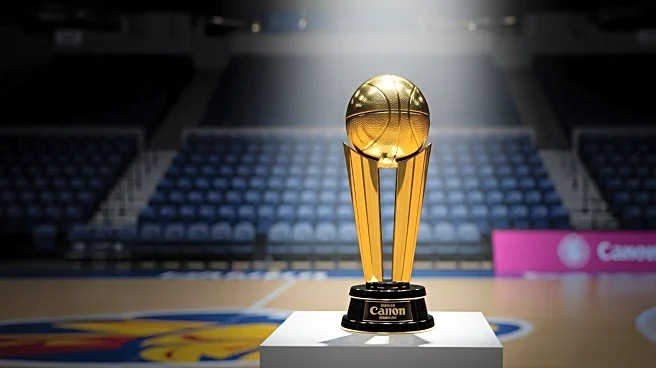What's Happening?
WNBA Commissioner Cathy Engelbert held a press conference to address recent criticisms from players, particularly Minnesota Lynx star Napheesa Collier. Collier had previously aired grievances regarding the league's leadership and treatment of players, accusing Engelbert of taking undue credit for media deals and making dismissive comments about player earnings. Engelbert refuted these claims, labeling them as inaccuracies, and expressed her commitment to resolving the issues. She announced plans to meet with Collier and emphasized the league's efforts to improve officiating and player relations. Engelbert also denied rumors of her resignation and highlighted ongoing negotiations for the league's collective bargaining agreement, which expires at the end of October.
Why It's Important?
The press conference comes at a critical time for the WNBA, as tensions between players and league management have escalated, potentially leading to a player strike. The issues raised by Collier highlight broader concerns about player compensation, league governance, and the integrity of officiating. These developments could impact the league's reputation, financial stability, and its ability to attract and retain top talent. The outcome of the negotiations and Engelbert's ability to address player concerns will be crucial in maintaining the league's growth and ensuring its future success.
What's Next?
Engelbert plans to meet with Collier next week to discuss the issues further. The league is also working on establishing a state of the game committee to address officiating concerns. The WNBA's collective bargaining agreement is set to expire on October 31, and Engelbert expressed confidence in reaching an agreement with the players association, though a deadline extension remains a possibility. The league's response to these challenges will be closely watched by players, fans, and stakeholders.
Beyond the Headlines
The situation underscores the ongoing struggle for professional female athletes to achieve parity in pay and recognition compared to their male counterparts. The WNBA's handling of these issues could set a precedent for other women's sports leagues facing similar challenges. Additionally, the league's approach to player relations and governance may influence public perception and support for women's sports.










